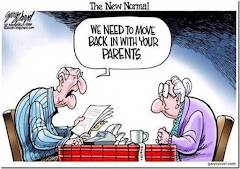One of the major news stories over the past several weeks has been the failed attempt to approve a new national plan to replace Obamacare. No matter what you think about this process, all of us are caught up one way or another in the many problems associated with healthcare. For many it is a very expensive journey. For some it has been a growing problem of finding doctors and enduring long waits for appointments.
Unfortunately, in the past two years I've had more experience with these problems than I ever dreamed that I would. In the first three months of 2017 alone I had 16 doctor appointments, four dentist appointments, a visit to the ER, a Spect Bone Scan, a cat scan, and numerous blood tests, treatments, and trips to the pharmacy. And without answers, there are many more of these to come.
Recently my wife and I discussed the many changes that we have seen in health care over seven decades. Now I don't recall much about going to the doctor until I was probably about seven. I do know that when I was four I had my tonsils out - in a doctor's office - in Bethlehem. All that I remember about that was the terrible smell of the either and at times I wish I could forget that. Now I can't imagine any doctor today who would do that surgery in his office. And why in Bethlehem? I really don't know - maybe the doctor went to the church where my grandfather was pastor. I wish that I would have asked my parents more about that experience.
I do know that back then doctors did make house calls. I can remember the doctor coming to visit my sister when we lived in Lititz. My wife recalls many doctor home visits after she broke her leg in Elizabethtown. Today the closest thing to a home visit might be a telephone call or a contact through their portal. However, one doctor told me that he doesn't like to do this because he doesn't get paid for such a service.
Of course, today there are urgent care facilities and emergency rooms. I've never yet used the urgent care places but if you go to the ER, be prepared to spend hours there.
And speaking of hours, one of the memories we have is usually waiting many hours in the doctor's waiting room just to see the doctor. It wasn't until we began to go to Dr. Bryson, in 1963, that we saw a doctor who had appointments. Prior to that you just went to his office, signed a list, and then waited for your turn. Sometimes that meant hours of waiting and that was terrible when you were really ill or had a sick child. Now you need an appointment and sometimes you still sit and wait to be seen. Fortunately there are some who do run on time. But sometimes just getting an appointment can be an adventure. I have often had to wait several months to see a specialist.
And specialists are also something that has changed. In our younger days the family doctor seemed to care for most of our needs. I guess there were specialists, I just don't recall ever needing them. Now there are specialists for almost everything. In fact, between my wife and I, there are currently 15 different specialists who care for our various needs. And in some specialty areas there aren't enough of them which means you wait even longer to get an appointment.
Specialists are also causing another problem. They make more money than family doctors, so fewer medical students are going into family medicine. As a result there is a growing shortage of family doctors and as older ones begin to retire there are not replacements available to hire. The practice that we go to has three experienced good doctors retiring.
HIPPA has also created changes. Gone are the days when doctors could freely share information with family members. If parents don't list their children on the HIPPA policy form with each doctor, the children will not be given vital information about their parents when they may need it. This could create a serious problem. Of course that does eliminate some of the unfortunate things that happened before HIPPA. Actually, our doctor informed my father-in-law that my wife was pregnant before he told us. That is how we learned about it.
With the electronic age, portals have become required and I like that. We can now review test results and vitals, keep track of appointments, review reports of our visits and recommendations, and even communicate with our doctors through these portals. However, because of the lack of standardization, I presently have five portals and my wife has four.
Well times are changing and who knows what changes we'll see in the next decade. Actually we just heard that our family practice has been bought out by a large area hospital. That will create additional changes, including a few of our best family doctors deciding to retire early. I imagine we will see more family practices bought out by the hospitals, more specialists, more use of technology, longer waits for appointments and treatment, more retirements of experienced doctors, more paperwork and regulations for offices and, of course, higher costs for us. The day of the family doctor who knew all about you and your family, provided care and medicine from his office or a home visit, and gave individual attention to your needs, is gone. We really are becoming just numbers in an expanding complex of medical "care".
But what can one do or say. We need the medical profession and just have to adjust to the changes. And we need to remember that no matter what really happens with the profession, our final care is really in the hands of the Great Physician. And He does care for us.










No comments:
Post a Comment